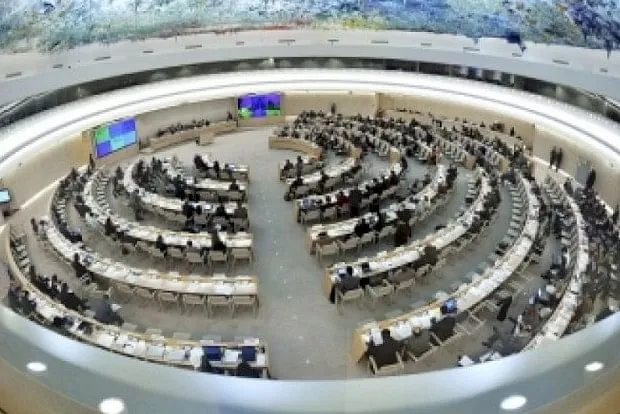India, which abstained during the vote on a strong resolution against Sri Lanka’s human rights practices at the UNHRC, on Tuesday urged Colombo to fulfill its commitments on the devolution of political authority, to carry forward the process of reconciliation and address the aspirations of the Tamil community in the island nation.
The resolution titled ‘Promotion of Reconciliation Accountability and Human Rights in Sri Lanka’ was adopted by the UN Human Rights Council (UNHRC) after 22 members out of 47-member Council voted in favour of it, which gives the UN body a mandate to collect evidence of crimes committed during the country’s brutal three decade-long civil war against the LTTE.
Eleven members voted against the resolution tabled by the Core Group on Sri Lanka consisting of countries like the United Kingdom, Canada and Germany.
India was among 14 countries which abstained from voting.
Ahead of the voting, India said that as an immediate neighbour, it has contributed to the relief, resettlement, rehabilitation and reconstruction process in Sri Lanka after 2009.
India’s approach to the question of human rights in Sri Lanka is guided by two fundamental considerations, Pawankumar Badhe, First Secretary, Permanent Mission of India in Geneva said in a statement.
“One is our support to the Tamils of Sri Lanka for equality, justice, dignity and peace. The other is in ensuring the unity, stability and territorial integrity of Sri Lanka.
“We have always believed that these two goals are mutually supportive and Sri Lanka’s progress is best assured by simultaneously addressing both objectives,” Badhe said.
The 13th Amendment provides for devolution of power to the Tamil community. India has been pressing Sri Lanka to implement the 13th amendment which was brought in after the Indo-Sri Lankan agreement of 1987.
The Sinhala majority hardliners of the ruling Sri Lanka People’s Party have been advocating a total abolition of the island’s provincial council system established in 1987. According to the Lankan government figures, over 20,000 people are missing due to various conflicts including the three-decade brutal war with Lankan Tamils in the north and east which claimed at least 100,000 lives. The Tamils alleged that thousands were massacred during the final stages of the war that ended in 2009 when the government forces killed Liberation Tigers of Tamil Eelam (LTTE) chief Velupillai Prabhakaran.






